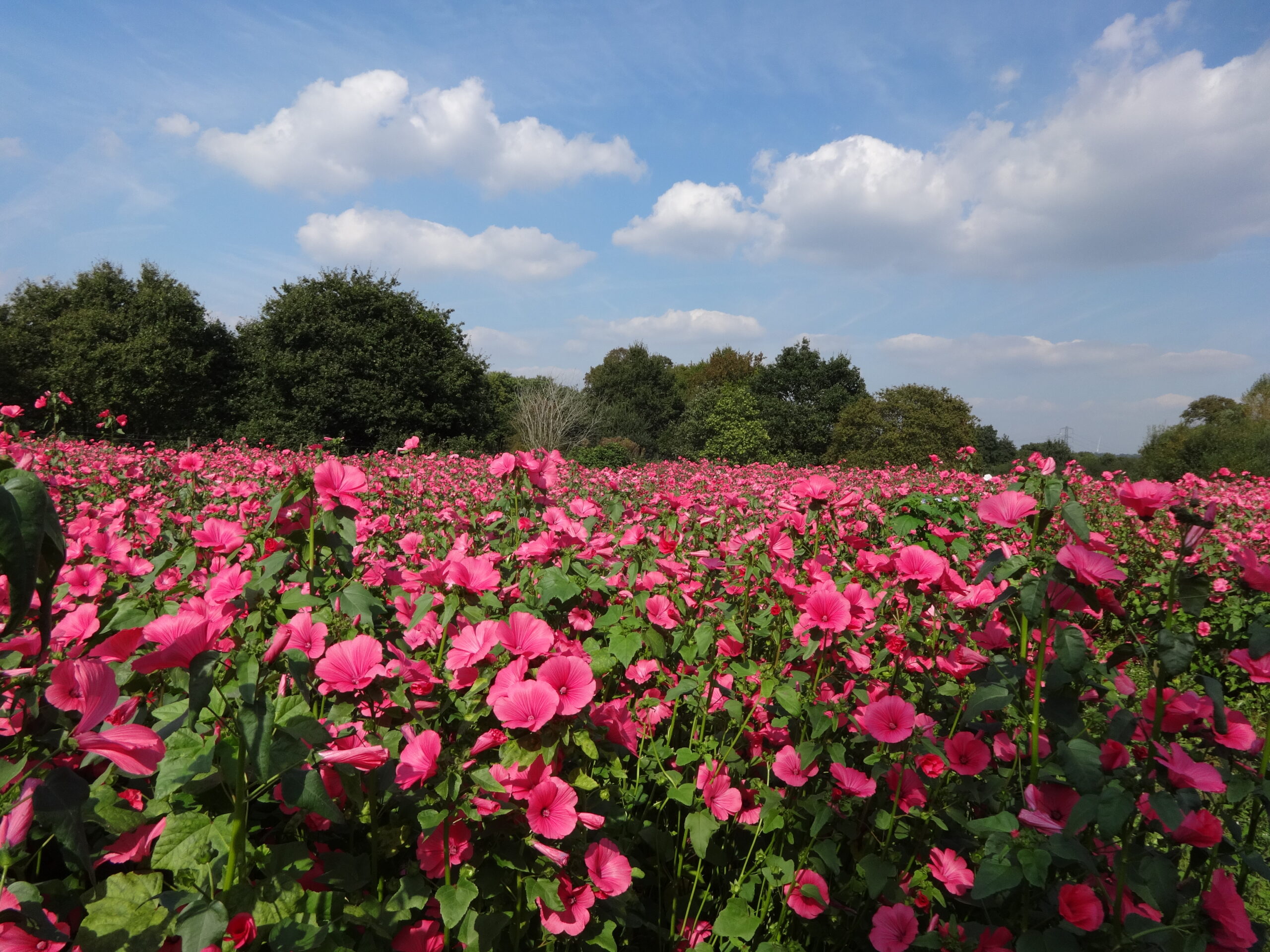Carbon in organic matter (decaying plant and animal remains) in the soil is a globally-significant carbon store. The world’s soils hold three times more carbon than the world’s plants, amounting to more than 2 billion tons of carbon. This is important for climate change mitigation as storing carbon in soil removes it from the atmosphere.
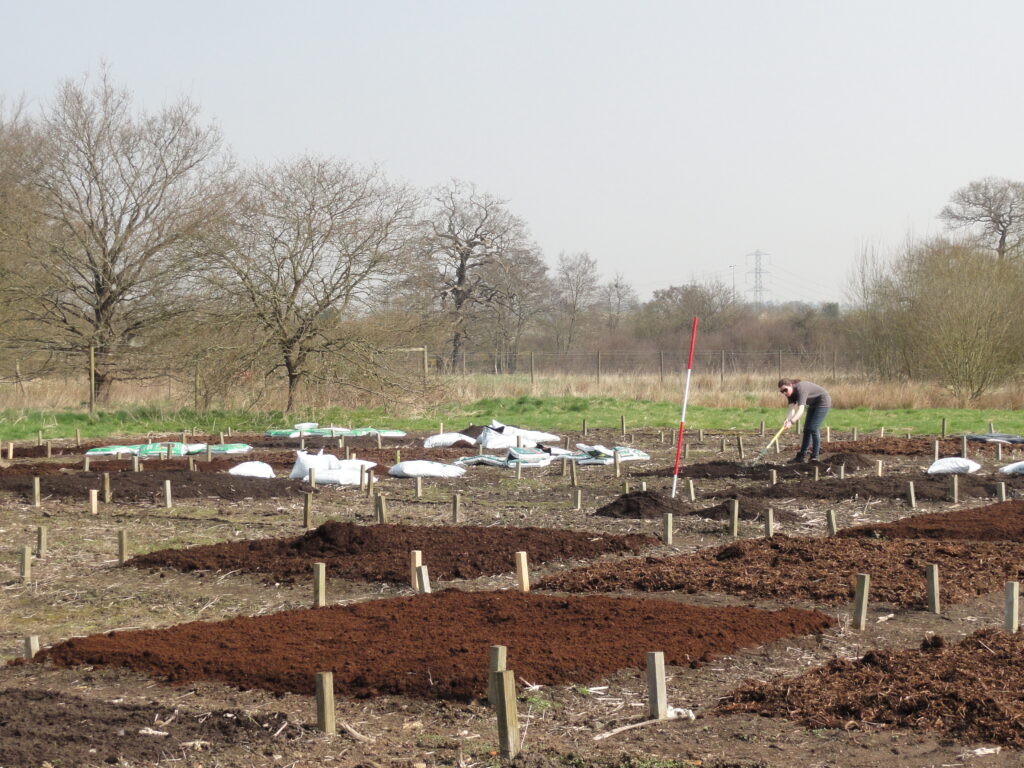
There are two overriding factors which determine how much carbon is in a soil: how much carbon is in the organic matter that is coming into contact with it, and how quickly that material is decomposed by organisms in the soil. Decomposer microorganisms feed on the organic matter and break it down into its simplest components. As organic matter is decomposed, water, carbon dioxide (a greenhouse gas), and nutrients (for plant growth) are released. So decomposition is an important process to understand.
It has been suggested that carbon can become protected from decomposition by microorganisms in the soil by binding itself to the surfaces of minerals (such as clay) or becoming encased in a soil aggregate (where soil particles bind together to form a clump). However, a lot of research into these processes come from areas that receive fresh plant material to the soil surface (forests, grasslands etc.).
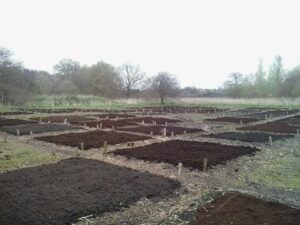
Gardeners may make a positive contribution to soil carbon storage by boosting their soils with organic matter in the form of composts, rather than fresh plant material. The primary motivation for compost application is to provide nutrients for plant growth, but could the peat-free alternative material gardeners select from the wide range available have differing effects on soil carbon storage? During my PhD studies, in collaboration with the Royal Horticultural Society (RHS) and colleagues at the University of Reading, I tried to find out using a field experiment at RHS Wisley Gardens.
I found that soil carbon quantity did indeed differ according to the type of organic matter applied. Materials with higher amounts of what is known as alkyl carbon (originating from plant fats and waxes), for example, were more resistant to decomposition leading to a build-up of carbon.
However, it was found that the resulting soil carbon was in a form that was potentially vulnerable to decomposition in the future because it is not bound to mineral particles or protected in soil aggregates. This puts into question the practice of compost application as a means of increasing soil carbon in the long term.
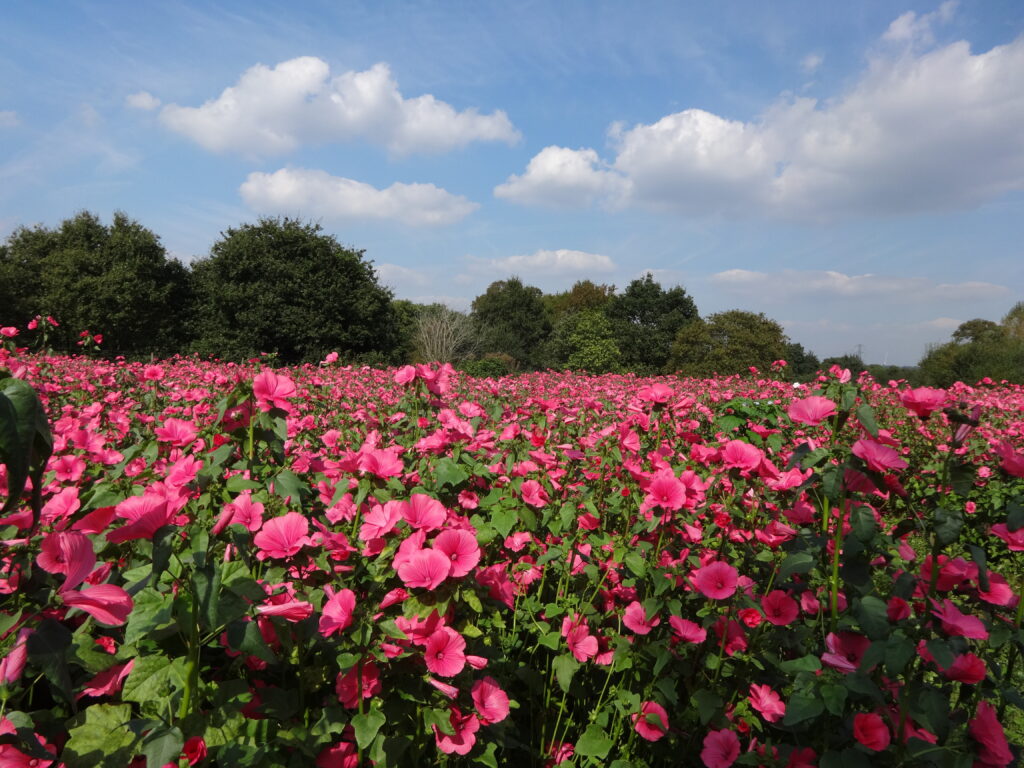
The RHS are continuing their research into the use of compost, and peat free alternative media at their experimental site in RHS Wisley Gardens, you can read more here.
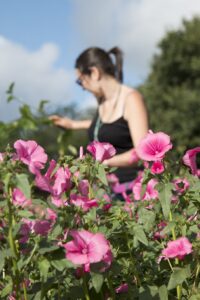
Sarah Duddigan is a Research Assistant split between the Department of Geography and Environmental Science, and the Department of Sustainable Land Management at the University of Reading. She is the winner of the University’s 2023 Research Output Prize (Environment theme) for her article as first author in Scientific Reports, ‘Effects of application of horticultural soil amendments on decomposition, quantity, stabilisation and quality of soil carbon’. The paper is dedicated to the memory of Professor Joanna Clark, a valued examiner, mentor and friend.

